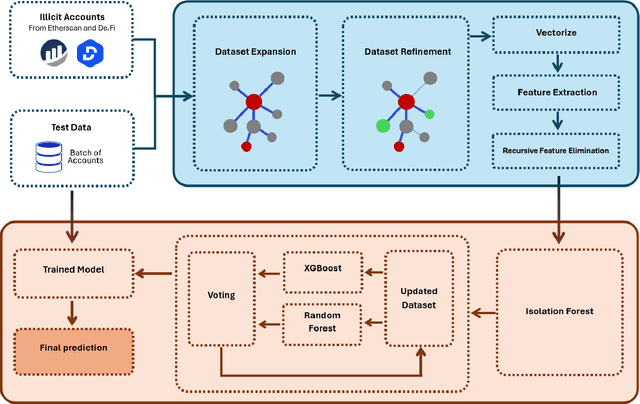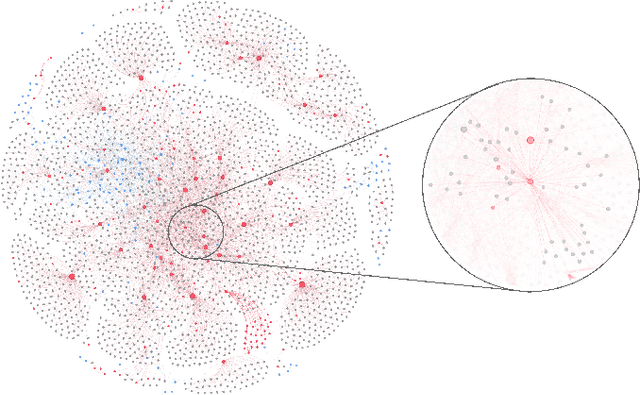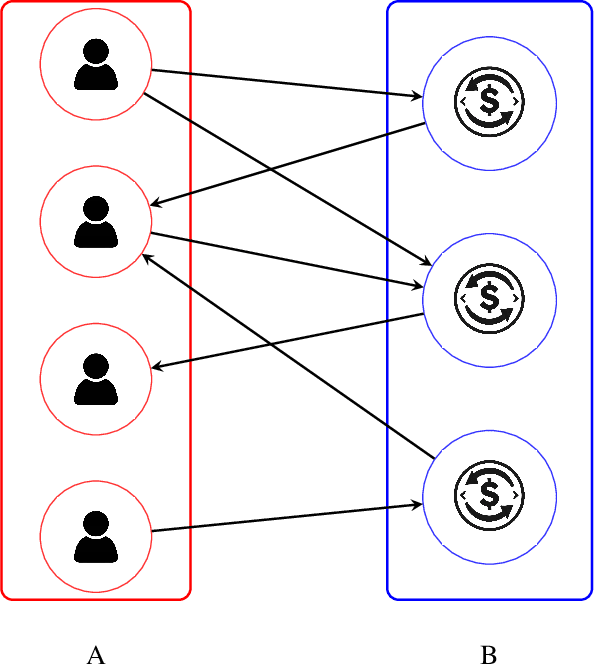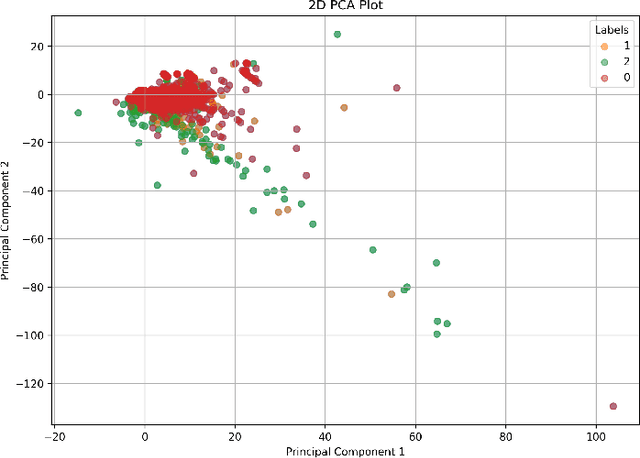Leveraging Ensemble-Based Semi-Supervised Learning for Illicit Account Detection in Ethereum DeFi Transactions
Paper and Code
Dec 03, 2024



The advent of smart contracts has enabled the rapid rise of Decentralized Finance (DeFi) on the Ethereum blockchain, offering substantial rewards in financial innovation and inclusivity. However, this growth has also introduced significant security risks, including the proliferation of illicit accounts involved in fraudulent activities. Traditional detection methods are limited by the scarcity of labeled data and the evolving tactics of malicious actors. In this paper, we propose a novel Self-Learning Ensemble-based Illicit account Detection (SLEID) framework to address these challenges. SLEID employs an Isolation Forest for initial outlier detection and a self-training mechanism to iteratively generate pseudo-labels for unlabeled accounts, thereby enhancing detection accuracy. Extensive experiments demonstrate that SLEID significantly outperforms traditional supervised approaches and recent semi-supervised models, achieving superior precision, recall, and F1-scores, particularly in detecting illicit accounts. Compared to state-of-the-art methods, our approach achieves better detection performance while reducing reliance on labeled data. The results affirm SLEID's efficacy as a robust solution for safeguarding the DeFi ecosystem and mitigating risks posed by malicious accounts.
 Add to Chrome
Add to Chrome Add to Firefox
Add to Firefox Add to Edge
Add to Edge